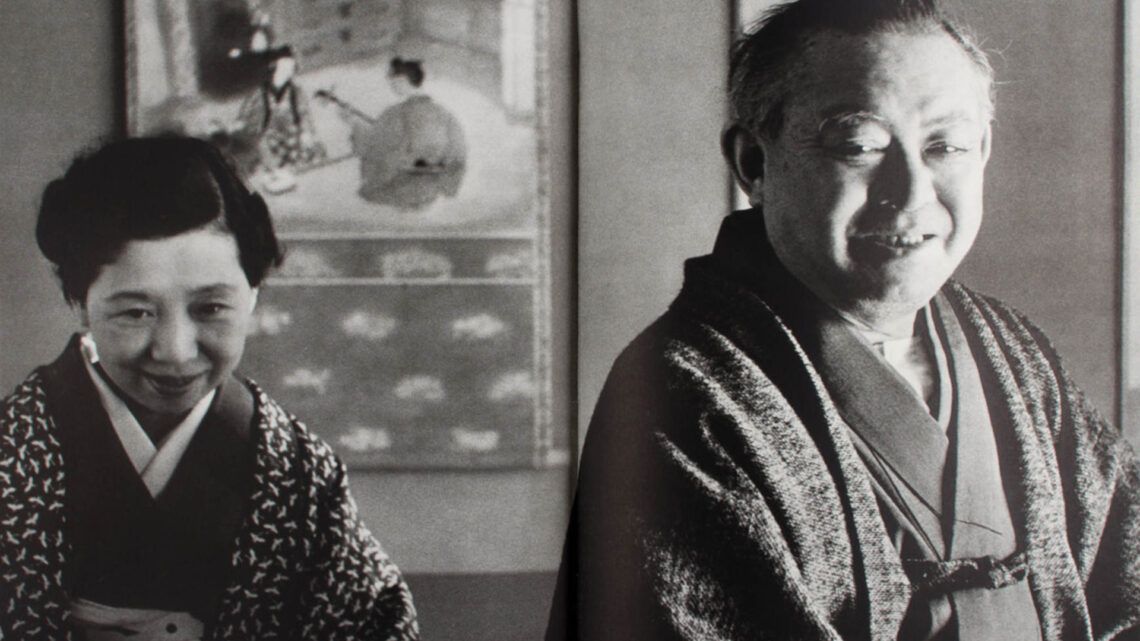
The Japanese writer Haruki Murakami, born on January 12, 1949, in Kyoto, Japan, is an internationally renowned author known for his unique novels and short stories. His work is characterized by a fascinating blend of reality and surrealism, everyday life and magic. Murakami’s narratives transport the reader into a world that is simultaneously familiar yet filled with mysterious twists.
Growing up in Kobe, Japan, and later in Tokyo, Murakami developed a passion for literature and music at an early age. After studying theater arts at Waseda University in Tokyo, he and his wife opened a jazz café named “Peter Cat.” This period influenced his writing and led to a lifelong love of jazz music, which is reflected in many of his works.
Murakami’s literary career began in the late 1970s when he started publishing short stories. His debut novel, “Hear the Wind Sing,” was published in 1979 and won the Noma Literary Prize. It marked the beginning of an impressive series of publications that established him as one of Japan’s most significant contemporary writers.
In the 1980s, Murakami established himself as a leading figure in Japanese literature and gained increasing international recognition. His breakthrough came with the novel “Norwegian Wood” (1987), which also introduced him to a broad audience outside Japan. “Norwegian Wood” is a poignant tale of love, loss, and coming of age that touched many readers worldwide.
Murakami’s style is characterized by clear, concise language and a deep sense of atmosphere. His works are often permeated by a melancholic mood, yet always tinged with a hint of hope. He combines elements of magical realism with everyday scenes, creating a unique literary world that is both fascinating and unsettling.
Another distinctive feature of Murakami’s work is his intense exploration of themes such as loneliness, search for identity, and existential alienation. His protagonists are often isolated individuals navigating a surreal and often disturbing world in search of meaning and connection.
Murakami’s novels are known for their intricate plotlines and unexpected twists. He skillfully weaves together different narrative layers, allowing his characters to interact in complex inner and outer worlds. The result is a captivating read that keeps the reader spellbound until the last page.
Among Murakami’s most famous works are novels like “Kafka on the Shore” (2002), “Killing Commendatore” (2017), and “1Q84” (2009), all of which enjoyed international acclaim and multiple awards. For example, “Kafka on the Shore” tells the story of a young man who leaves home to find answers to his questions and becomes embroiled in a mysterious and fascinating adventure.
Murakami has also published a number of essays and short stories that showcase his broad range of interests and literary versatility. In addition to his writing, he is an avid marathon runner and has also published books about his passion for running.
Murakami’s universal themes and masterful storytelling have earned him a loyal readership worldwide. His works have been translated into more than 50 languages and have sold millions of copies. Despite his international success, Murakami has remained deeply connected to his homeland of Japan and is also dedicated to supporting young writers.
With his distinctive style and unique vision of literature, Haruki Murakami has significantly influenced and inspired contemporary writing. His influence extends far beyond the borders of Japan, making him one of the most influential and fascinating writers of our time. His work will continue to captivate and touch generations of readers around the world in the future.
The work of Haruki Murakami

The work of Haruki Murakami is rich in profound themes, exploring loneliness, search for identity, love, loss, and the human existence.
Murakami’s literary career began in the late 1970s when he decided to leave his job at a jazz club to fully dedicate himself to writing. His work establishes him as an innovative storyteller, characterized by surreal plotlines, mysterious characters, and a melancholic atmosphere.
A milestone in Murakami’s career was the novel “Kafka on the Shore,” published in 2002. In this work, he masterfully intertwines the stories of two protagonists, 15-year-old Kafka Tamura and the aging Nakata, leading the reader through a labyrinth of dream and reality, past and present. “Kafka on the Shore” exemplifies Murakami’s ability to explore complex emotional landscapes while creating a captivating narrative.
Murakami’s works are often infused with his love for music, especially jazz. This passion is reflected in his novels, where music plays a central role, often serving as a medium to express emotions and establish connections between characters. The connection between music and literature is a recurring motif in Murakami’s work, adding a unique sonic dimension to his stories.
Another prominent feature of Murakami’s writing is his ability to create an atmosphere of loneliness and alienation that permeates his characters. His characters are often searching for identity and meaning in a world that seems foreign to them, grappling with inner conflicts and existential questions. These themes can be found in works such as “Norwegian Wood,” “Colorless Tsukuru Tazaki and His Years of Pilgrimage,” and “Killing Commendatore.”
Murakami’s influence on contemporary literature extends far beyond the borders of Japan, making him one of the most read and discussed authors worldwide. His works have been translated into numerous languages and have found a broad readership attracted to his distinctive storytelling and profound themes.
In recent years, Murakami has continued to evolve his writing, exploring new avenues including essays and short story collections. This versatility and his consistent creative output make him a prominent figure in the contemporary literary scene.
Haruki Murakami remains a fascinating and influential writer, whose work continually redefines the boundaries of literature and inspires readers around the world. With his unique style and profound themes, he will undoubtedly continue to captivate and enthrall generations of readers in the future.
Some books by Haruki Murakami

Murakami’s most renowned works form an impressive collection of literary masterpieces, distinguished by their originality and captivating narratives. Among them stands out “Kafka on the Shore,” a novel that intertwines two stories: that of a young man named Kafka Tamura who leaves home to find himself, and that of an older man named Nakata who possesses extraordinary abilities. With a blend of magic, surrealism, and profound humanity, Murakami guides us through a labyrinth of dream and reality.
Another pinnacle in Murakami’s career is “1Q84,” a two-volume novel exploring themes of art, loneliness, and identity. The story follows an unnamed first-person narrator, a painter who retreats to a remote house after separating from his wife and encounters a mysterious painting that will change his life forever. With his masterful storytelling and profound reflection on the nature of art and self, this work has enthralled readers worldwide.
“Norwegian Wood” is another significant work by Murakami, delving into themes of love, loss, and the quest for identity. The novel tells the story of a young student named Toru Watanabe who falls in love with Naoko, the girlfriend of his best friend, and grapples with her emotional instability and the death of their mutual friend Kizuki. Through a sensitive portrayal of the human psyche and its depths, Murakami succeeds in telling a touching and profound story that lingers long after.
“Colorless Tsukuru Tazaki and His Years of Pilgrimage” is a novel about friendship, loss, and the search for reconciliation. The story follows Tsukuru Tazaki, a young man suddenly abandoned by his closest friends without explanation. Years later, he embarks on a journey to uncover the reasons for their sudden disappearance and to find his own place in the world. With its empathetic portrayal of human relationships and its ability to explore complex emotions, this work has touched and impressed readers worldwide.
These works are just a few examples of Murakami’s outstanding literary accomplishments and his ability to tell profound stories that transcend the boundaries of imagination and captivate readers. With his unique style and unmistakable voice, Haruki Murakami will undoubtedly continue to have a lasting impact on world literature.
My personal conclusion

Haruki Murakami is undoubtedly one of the most fascinating authors of our time, whose work has left a profound and lasting impact on me. Through reading his novels, short stories, and essays, I have not only gained a deeper understanding of human existence but also developed a new perspective on the world around me.
Murakami’s ability to explore complex emotional landscapes while telling captivating stories has deeply impressed me. His unique style, which interweaves elements of magical realism, surrealism, and everyday reality, has transported me into a world that is both familiar and alien.
One of the things that particularly fascinate me about Murakami’s work is his treatment of themes such as loneliness, search for identity, and love. Through his empathetic portrayal of the human psyche and his ability to explore the innermost thoughts and feelings of his characters, he has prompted me to reflect on my own experiences and emotions.
Another aspect of Murakami’s work that has impressed me is his love for music and how he integrates it into his stories. As a great lover of music, his passion for jazz and classical music has inspired me, and I have enjoyed discovering the many musical references in his works.
A personal highlight of my experience with Murakami’s work was discovering his major works such as “Kafka on the Shore,” “Norwegian Wood,” and “1Q84.” These novels have deeply moved me and prompted me to contemplate the big questions of life while being captivated by Murakami’s masterful storytelling.
Furthermore, Murakami’s influence on contemporary literature and his worldwide fame as an author have impressed me. His work has been translated into numerous languages and has inspired and captivated readers around the world. It is fascinating to see how his stories can resonate with and connect people from different cultures and backgrounds.
Overall, my encounter with Haruki Murakami’s work has expanded my literary understanding and greatly broadened my horizons. His unique voice and profound themes will accompany me for a long time and will continue to inspire me to contemplate the world and my own existence. Haruki Murakami will undoubtedly leave a lasting impression on literary history, and his work will touch and inspire future generations of readers.



